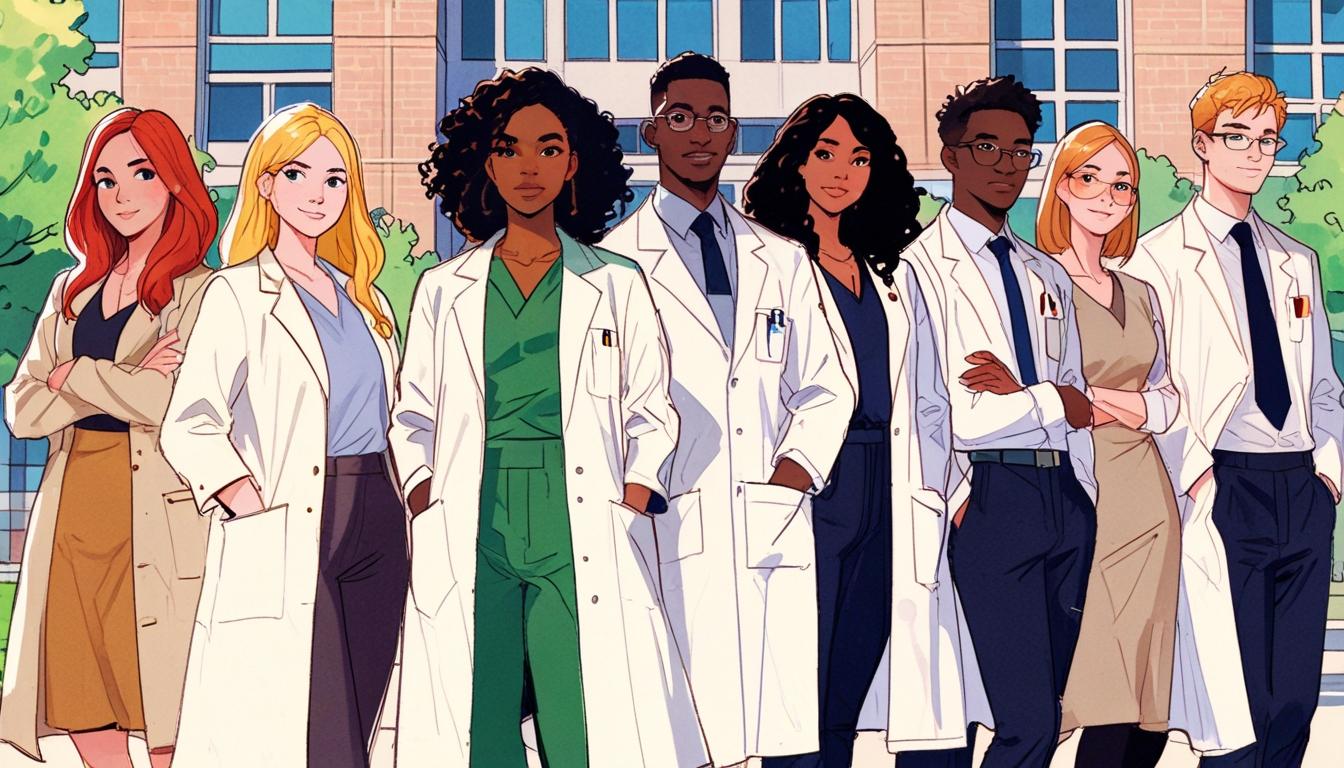A recent report by the Sutton Trust highlights an evolving trend in medical school admissions across the UK, where institutions are increasingly offering places to disadvantaged students with lower academic grades. The research reveals that some medical courses are now accepting students with BBC A-level grades, in stark contrast to the traditional entry requirement of AAA or above.
The study, conducted in partnership with University College London, sheds light on admissions practices aimed at enhancing diversity within the medical profession. The report cited that only 5 per cent of medical school entrants came from disadvantaged backgrounds in 2021, compared to 75 per cent from more privileged environments. In particular, the research noted that applicants from private schools were 1.5 times more likely to receive offers compared to those hailing from non-selective state schools.
Many medical schools, including Leicester and Bristol Universities, have integrated 'gateway' courses that offer reduced entry requirements alongside an additional foundation year. This extra year is designed to support students who may have experienced barriers to traditional academic success, such as low income or having grown up in deprived areas. According to the report, a prominent factor in the chances of admission was the prior educational attainment of applicants, with students from disadvantaged backgrounds generally achieving lower scores in GCSEs, A-levels, and the University Clinical Aptitude Test (Ucat).
The Sutton Trust advocates for a more ambitious use of contextual offers—where admissions criteria are adjusted based on the applicant’s background—arguing that many capable students often do not receive results that reflect their potential due to systemic disadvantages. Nick Harrison, chief executive of the Sutton Trust, stated, "Patients benefit from doctors who reflect the diversity of the communities they serve, but it's clear that we're a long way from that today." He stressed that factors like parenting and income should not obstruct a student's journey to becoming a doctor.
Clare Owen, the director of education at the Medical Schools Council, revealed that the collective goal for the sector is to have 33 per cent of medical students from disadvantaged backgrounds by 2032. This ambition aims to equate to approximately 6,000 students annually entering the medical profession. Dr Sam Adcock, head of foundation year at Leicester's Medical School, remarked that diversifying the student intake, rather than solely focusing on traditional academic metrics, enriches the medical workforce and better represents the communities it serves.
However, the report has met with criticism from figures like Chris McGovern, a spokesperson for the Campaign for Real Education, who argued that prioritising diversity over academic merit could compromise patient safety and professional competence. He highlighted the importance of improving educational standards rather than attributing academic performance to social background.
Bristol University, in articulating its commitment to diversity, expressed that its Gateway to Medicine course is designed for students who possess the potential to excel as doctors despite not meeting standard academic criteria. The institution emphasised that many students admitted through this route have gone on to achieve exceptional academic success and contribute significantly to the NHS.
As medical schools navigate the balance between inclusivity and academic standards, the discourse around recruitment practices continues to evolve, reflecting broader societal conversations around access and equality in higher education.
Source: Noah Wire Services
